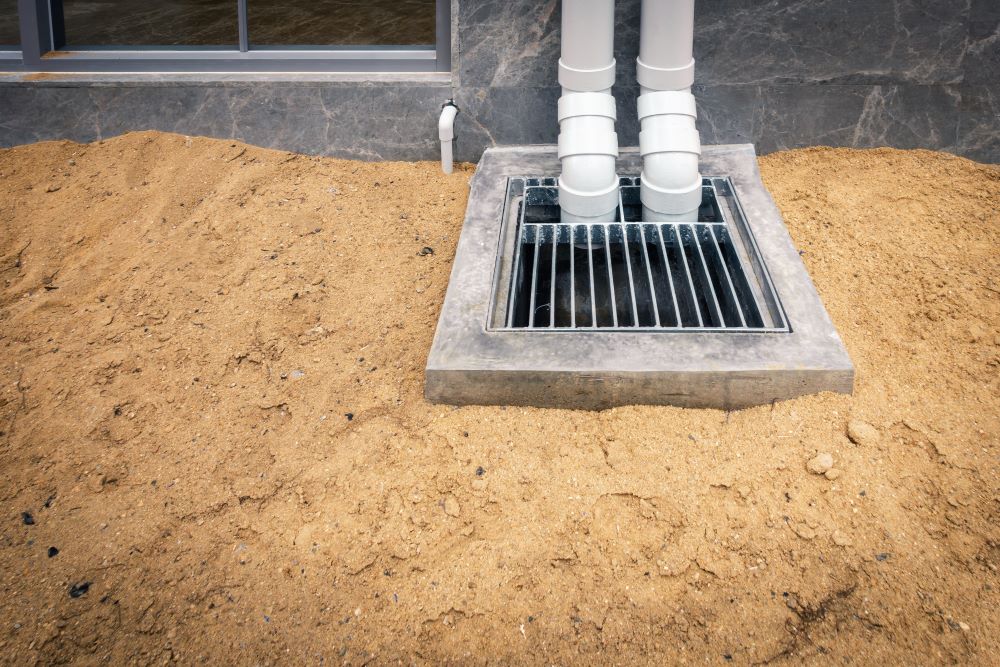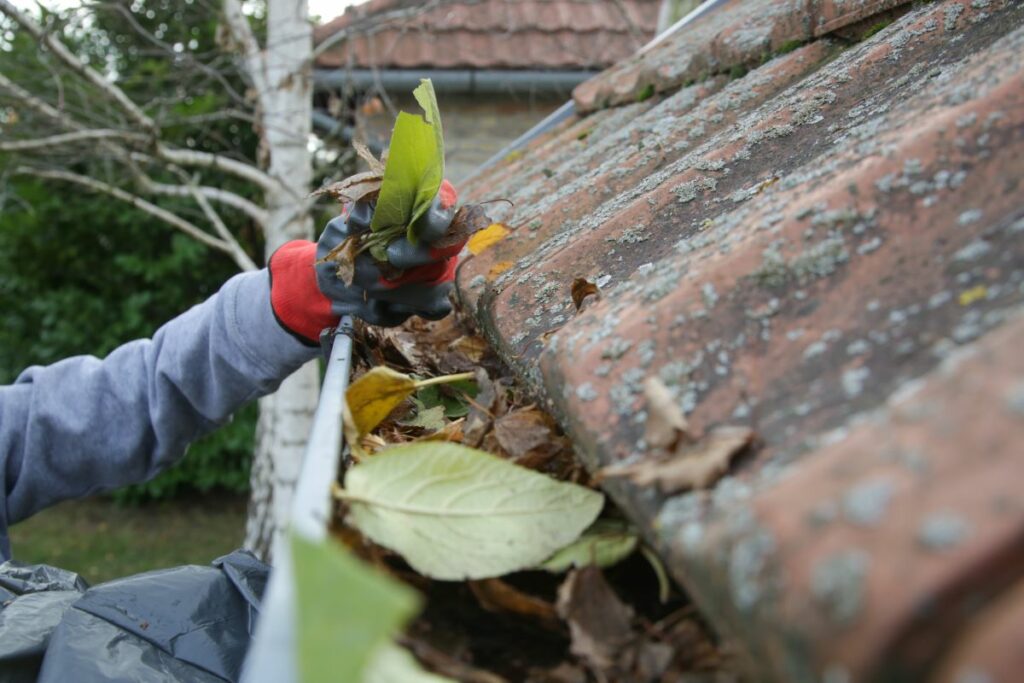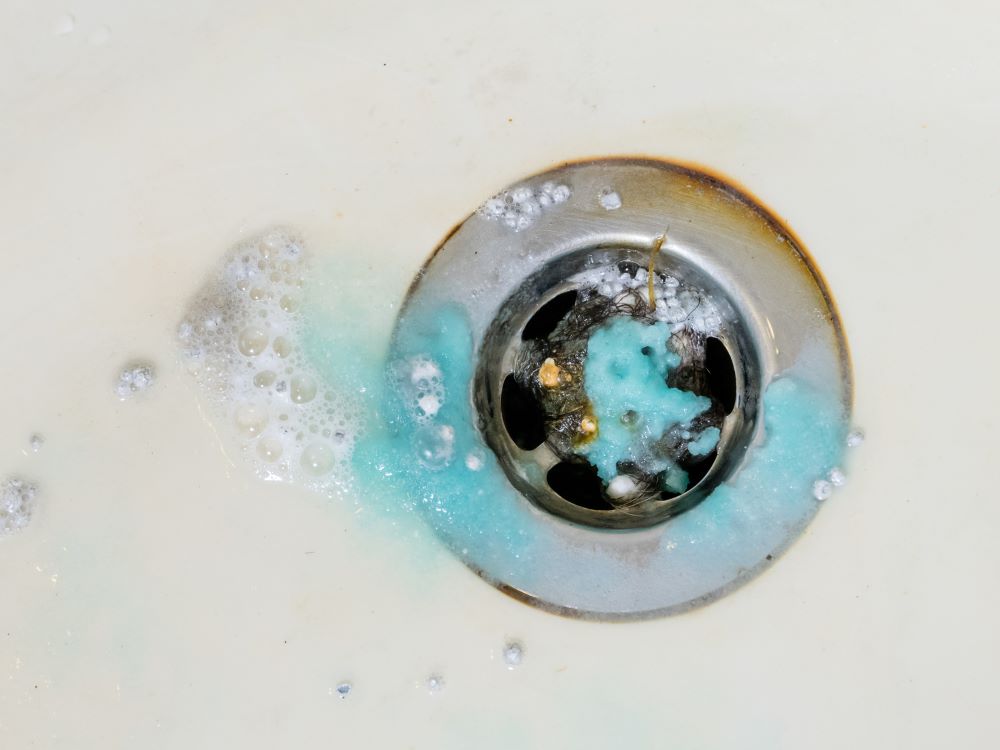Simplistic Drain Maintenance: Look after Your Property

Extreme weather events, such as heavy rainfall and storms, can have a significant impact on the care of drains in Auckland, New Zealand. These events can lead to increased flooding and blockages, posing a threat to the efficient functioning of drainage systems.
Therefore, excessive rainfall can overwhelm drains, causing them to become clogged with debris and litter. Inadequate drainage maintenance during extreme weather can result in water pooling around properties and seeping into foundations, causing structural damage and potential health hazards.
In this article, Fox Drainage will explain ways you can look after your property with drainage maintenance.
Drainage Maintenance for Homeowners
Homeowners need to prioritise regular inspections and clearing of drains to prevent flooding and blockages during extreme weather events. Neglecting drain maintenance in such conditions can lead to costly repairs and further damage to the property.
As a responsible homeowner in Auckland or any region in New Zealand, it is crucial to understand the importance of maintaining your drains. Proper drain maintenance not only ensures the smooth flow of stormwater but also helps prevent flooding and water pollution.
In this expanded article, we will look deeper into six essential tips to help homeowners take care of their drains effectively.
By following these tips, you can contribute to a healthy stormwater system and environment, ensuring the smooth flow of water away from your property and minimising the risk of pollution and flooding. Remember, a little effort in drain maintenance can go a long way in protecting your property and the environment.
Drain Maintenance Tips
1. Regular Inspection:
Regular inspection of your drains is crucial to identify any potential issues before they escalate into major problems. Conduct visual inspections of your gutters, downspouts, and drainage systems at least twice a year, preferably in spring and fall. Look for signs of clogs, cracks, or leaks. Check for any loose connections or damaged pipes. Additionally, inspect your property for any pooling water or slow drainage, as these can indicate underlying issues that need immediate attention. By identifying problems early on, you can take proactive measures to prevent serious damage to your property and drainage system.
2. Clearing Debris:
One of the most effective ways to maintain your drains is by regularly clearing debris. Leaves, twigs, dirt, and other debris can accumulate in your gutters and downspouts, leading to clogs and obstructing the flow of water.
Use a sturdy ladder to access your gutters and remove any debris manually safely. Alternatively, consider using a gutter cleaning tool or hiring professionals to clear the debris.
Additionally, trim overhanging tree branches to prevent a build-up of leaves in your gutters. Remember, proactive debris removal is essential to ensure the smooth flow of stormwater and prevent potential blockages.

3. Avoiding Illegal Connections:
Illegal connections, such as connecting wastewater pipes to stormwater drains, can lead to serious environmental consequences. These connections can introduce harmful substances, chemicals, and pollutants into the stormwater system, which ultimately ends up in rivers, streams, and the ocean.
It is crucial to ensure that your property’s wastewater pipes are correctly connected to the sewer system, separate from the stormwater drains.
If you are unsure about the legality of your connections, consult a professional plumber to assess and rectify any potential issues.
4. Proper Waste Disposal:
Improper waste disposal can have detrimental effects on your drains and the environment. Avoid disposing of grease, oil, food scraps, and other non-biodegradable materials down your drains.
These substances can solidify, causing clogs and hindering the flow of water. Instead, scrape leftover food into the trash, collect cooking grease in a container, and dispose of it properly. Additionally, consider installing drain guards or strainers to prevent larger debris from entering your drains.
By being mindful of what goes down your drains, you can prevent blockages and maintain a healthy drainage system.
5. Maintaining Landscaping:
Proper landscaping practices can significantly impact the health of your drains. Ensure that your yard is appropriately graded to direct water away from your property. Improper grading can cause water pooling, leading to potential damage to your foundation and drainage system.
Regularly inspect your yard for any signs of erosion, as this can indicate drainage issues. Consider installing permeable paving or gravel pathways to allow water to infiltrate the soil instead of running off into the drains.
Additionally, avoid over-watering your lawn, as excessive water can saturate the ground and put additional strain on your drains.
6. Seeking Professional Help When Needed:
While regular maintenance can go a long way in preventing drain issues, there may be situations where professional help is necessary. If you encounter persistent clogs, foul odours, or slow drainage, it is advisable to seek assistance from a professional plumber or drain specialist such as Fox Drainage. As experts, we have the knowledge, tools, and experience to diagnose and resolve complex drainage problems effectively.
Attempting to tackle severe issues without proper expertise can potentially exacerbate the problem and lead to costly repairs in the future. Remember, it is better to be safe than sorry when it comes to drain maintenance.
Importance of Maintenance
Maintaining your drains is an essential responsibility for every homeowner in Auckland. By following these six essential tips –
- regular inspection
- clearing debris
- avoiding illegal connections
- proper waste disposal
- maintaining landscaping
- seeking professional help when needed
You can ensure the smooth flow of stormwater, minimize the risk of flooding, and contribute to a healthy environment. Remember, a little effort in drain maintenance can go a long way in protecting your property and the environment.
So, prioritise drain maintenance and make it a part of your routine to safeguard your home and the surrounding ecosystem.
With these tips, we have written some basic care instructions for your own drains at home so that you can help do your part.
Here is a step-by-step on some basic maintenance for your indoor drains
- Remove any visible debris or clogs from the drain. You can do this by using a wire hanger or any other long, thin tool to pull out any debris that may be blocking the drain.
- Use a drain Auger: A drain auger helps to break up any serious clogs that you cannot remove with a wire hanger or other tool. Insert the auger into the drain and turn it clockwise to break up any blockages.
- Remove any potential clogs: Using a plunger or a barbed plastic cleaning tool. This will help clear any blockages and improve drainage.
- Use a biological cleaner: If the clog is stubborn, consider using a biological cleaner. These cleaners contain enzymes that break down organic matter, helping to clear the clog without the use of harsh chemicals. Use the cleaner as directed on the packaging.
- Banish foul odours: To eliminate foul odours, you can use a mixture of vinegar, baking soda, and hot water. Pour half a cup of baking soda down the drain, followed by half a cup of white vinegar. Cover the drain opening and let it sit for 15-20 minutes. Then, flush the drain with hot water. This will help eliminate any lingering odours.
- Prevent future clogs: To prevent future clogs, use drain screens to catch hair, food particles, and other debris. Avoid pouring grease down the drain, as it can solidify and cause blockages. Additionally, regularly clean your garbage disposal by grinding ice cubes, salt, and lemon slices. This will help keep the disposal clean and prevent odours.
- By following these steps regularly, you can maintain clean, odour-free drains and prevent clogs in the future.
Key Advice
If you’re a homeowner, it’s important to keep an eye on your drainage system to avoid costly repairs down the line. Signs of a failing drainage system include slow water drainage, unpleasant odours, and strange gurgling sounds from the pipes.
If you notice any of these symptoms, it’s time to call in a professional plumber to assess the situation.
One of the most common indicators of a failing drainage system is the smell of sewage, which a variety of issues, such as cracked pipes or blockages can cause. Another sign is a soggy yard, indicating that water is pooling due to poor drainage. High water bills are also a red flag that your drainage system may need attention.
Repairs
In some cases, repairs may be sufficient to fix the problem, but in others, a full replacement of the system may be necessary. Signs that it’s time for a drainage system replacement include constantly gurgling pipes; pests attracted to your yard, and fluctuations in the water level of your toilet bowl.
Replacing a drainage system can be a costly undertaking, but it’s important to address the issue before it becomes more severe. As professionals, in drainage in the Auckland area, we can help you determine the best course of action based on your specific situation, and our team can complete the work for you. Regular maintenance and inspections can also help prevent major issues from occurring in the first place.
In Conclusion
It’s important to pay attention to the warning signs of a failing drainage system. If you notice any unusual smells, sounds, or drainage issues, it’s time to call in a professional to assess the situation. Don’t wait until it’s too late – addressing the problem early can save you time and money in the long run.
Please call us at Fox Drainage at the first sign of a problem so that we can provide timely and effective advice and work if needed.

